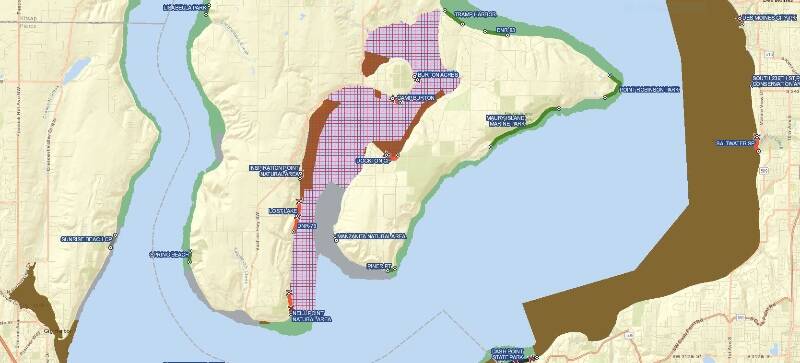The State Department of Health (DOH) has again closed recreational shellfish harvesting at Quartermaster Harbor beaches due to unsafe levels of paralytic shellfish poison.
The closure, effective Oct. 12, includes all species of shellfish including clams, geoduck, scallops, mussels, oysters, snails and other invertebrates, but does not include crab or shrimp, according to the DOH. Crabmeat is not known to contain the PSP toxin, but their guts and the fat in the back of their shell can contain unsafe levels, so crabs should be cleaned thoroughly and their guts and “butter” discarded.
Advisory signs will be posted at beaches warning people against collecting shellfish, according to the DOH.
The area closed for the same reason in mid-August. As of Oct. 17, a similar biotoxin closure was in effect across the Puget Sound coasts of Tacoma, Ruston, Gig Harbor and Southworth as well, according to the DOH.
Paralytic shellfish poison is a naturally-occurring neurotoxin created by some species of algae. Shellfish can eat those algae and retain the toxin, and it can cause illness or death to humans when consumed in high enough amounts. Cooking or freezing the shellfish won’t destroy the PSP, according to the DOH, and its presence can’t be detected by visual inspection alone.
Symptoms of PSP poisoning include numbness or tingling or the face, arms and legs; headache, nausea, dizziness and loss of muscle coordination; or in extreme cases, muscle paralysis and respiratory failure. For mild symptoms, contact the Washington Poison Center (800-222-1222) or Public Health (206-296-4774). If symptoms are severe, call 911 or have someone take you to an emergency room immediately.
The closure refers only to recreational shellfishing; commercial shellfish sites are monitored separately, according to the DOH.
For more information on shellfish safety and harvesting, visit online, or call the DOH biotoxin hotline at 1-800-562-5632.



